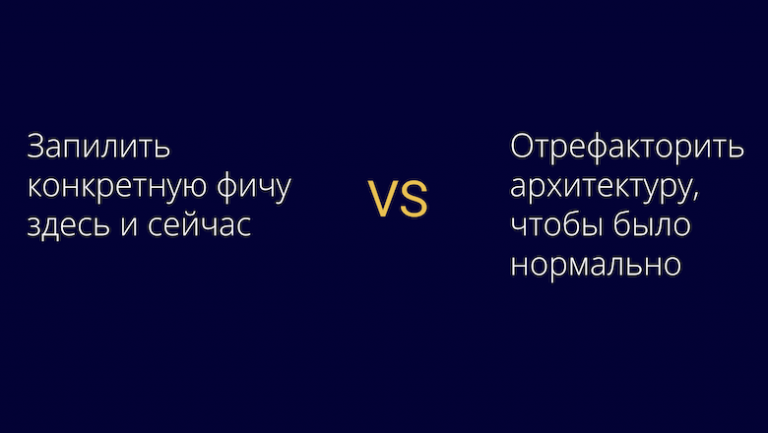Gerund in English: just about complicated
One of the most commonly used rules is gerund. Not the most difficult, but rather unusual for the understanding of a student who teaches English as a foreign language.
In this article, we explain how to properly use gerund and nowhere with
don’t screw it up.
What is gerund?
Gerund is a special form of the verb that behaves as a noun in a sentence.
To get the gerund, you need to add the ending “-ing” to the verb. There are no exceptions to this rule.
Read – reading (read – read)
Swim – swimming (swim – swimming)
Sing – singing (singing – singing)
The main difficulty is that the ending “-Ing” also characteristic of the present participle. Therefore, it is possible to determine whether the gerund is before you or the sacrament, only from the context and by the form of the sentence.
– Jane is singing, don’t bother her. “Jane is singing now, don’t bother her.”
– Her singing is awesome! I like it! – Her singing is wonderful! I like!
But if at first glance it seems that everything is simple, then the gerund may surprise you.
Because when translated into Russian, gerund can be almost anything. A verbal noun, a participle, a participle, a verb in the infinitive – there are many options. So when translating, you need to look at the rules of the Russian language.
– Keep asking him questions. “Keep asking him questions.”
In literal translation, it would be something like “Keep asking him questions”. But they don’t speak Russian like that, so an adequate equivalent is chosen. In this case, it is an infinitive.
Functions of gerund and a couple of nuances
Gerund possesses all the functions of a noun, so in a sentence it can be subject, predicate and complement.
1. Subject
– Smoking is bad for your health. – Smoking is bad for your health.
This is a very common grammar for an English speaker. It is used constantly, so you need to be able to use it.
Please note that formally, instead of gerund, you can use the infinitive.
– To smoke is bad for your health. – Smoking is bad for your health.
– To be or not to be – that is the question. – To be or not to be – that is the question.
But this is not quite familiar to a native speaker and is more characteristic of poetry or any high-minded speeches.
By the way, gerund in the literature is also used very widely. If you are interested in reading something interesting and at the same time pumping gerund, take the works of Jane Austen (“Pride and Prejudice”, “Mansfield park”), Somerset Maugham (“Of human bondage”, “Theater”) or John Galsworthy (“The Forsyte Saga “).
And one extremely simple rule. If the verb with the ending “-ing” is at the very beginning of the sentence, then it is 100% gerund.
2. Predictable
Such a vile rule, because it can easily be misleading.
The “is / are” form + verb with the ending “-ing” is typical for Present Continuous sentences.
But here gerund can be hidden in the form of the nominal part of the predicate.
– The main skill of a good interviewer is asking the right questions. – The main ability of a good interviewer is to ask the right questions.
The context is very important here. But there is a little trick. If you can swap the subject and predicate, and the meaning of the sentence is preserved, then here is definitely gerund.
– Asking the right questions is the main skill of a good interviewer. – The ability to ask the right questions is the main skill of a good interviewer.
Yes, when translating, you have to adapt to the requirements of the Russian language, because there is no complete analogue of gerund in the Russian language. But the general meaning has not changed.
Now let’s take another example.
– The interviewer is asking questions right now.
If you swap the subject and predicate here, you get rubbish. Therefore, it is obvious that in this sentence, “asking” is a participle.
3. Addition
It is a common addition as a minor member of a sentence.
– Jane likes swimming very much. “Jane loves to swim.”
There are almost no surprises here. The only thing you need to know is after which verbs you need to use gerund as a complement, and after which – the infinitive.
Below the spoiler is a complete list of verbs, after which gerund should be used. If in doubt whether to use gerund or an infinitive, just check the word below.
Advice
Allow
Anticipate
Appreciate
Avoid
Begin
Can’t bear
Can’t help
Can’t see
Can’t stand
Cease
Complete
Considerr
Continue
Defend
Delay
Deny
Despise
Discuss
Dislike
Don’t mind
Dread
Encourage
Enjoy
Finish
Forget
Hate
Imagine
Involve
Keep
Like / Love *
Attention
Mind
Miss
Need
Neglect
Permit
Postpone
Practice
Prefer
Propose
Quit
Recall
Recollect
Recommend
Regret
Remember
Report
Require
Resent
Resist
Risk
Start
Stop
Suggestest
Tolerate
Try
Understand
Urge
A small exception. The verbs “Like” and “Love” can be used with both gerund and infinitive. Both options will be correct.
– I like singing. I like to sing. – I love to sing.
– I love riding my bicycle. I love to ride my bicycle. – I like to ride my bike.
And under the next spoiler, we collected verbs, after which only the infinitive can be used. No options.
Agree
Appear
Arrange
Beg
Care
Claim
Consent
Decide
Demand
Deserve
Expect
Fail
Hesitate
Hop
Learn
Manage
Need
Neglect
Offer
Plan
Prepare
Pretend
Promise
Refuse
Seem
Struggle
Swear
Threaten
Volunteer
Wait
Want
Wish
Gerund vs. vs. Infinitive: what to use?
Together with some verbs, you can use both gerund and infinitive. But if with the verbs “Love” and “Like” the meaning of the sentence remains unchanged, then in other cases the meaning can radically change.
Here are some of the most common cases.
Mean to + infinitive – gather, intend, want to do something.
Mean + gerund – mean, mean.
– I didn’t mean to hurt you. – I did not mean that.
– Using robots would mean putting people out of work. – The use of robots will mean the removal of people from work.
Remember to + Infinitive – Remember something to do.
Remember + gerund – remember a moment in life, keep a memory.
– Do you remember to do your homework? “Do you remember that you need to do your homework?”
– I remember our climbing Elbrus in 2002. – I remember our climb to Elbrus in 2002.
Forget to + infinitive – forget about something that needs to be done.
Forget + gerund – forget some moment in life.
– Don’t forget to wash your hands when coming home. “Remember to wash your hands when you get home.”
– I will never forget eating on Mount Canaan. “I will never forget how we ate on Mount Canaan.”
Stop to + infinitive – stop to do something.
Stop + gerund – stop doing something.
– We stop to buy some food. – We stopped to buy food.
– Stop buying food! We don’t need that much of it. – Stop buying food! We do not need so much.
According to the experience of teachers of the EnglishDom online school of English, the largest number of errors with gerund occur precisely with the verb “Stop”. Therefore, be careful.
Under the spoiler is a list of verbs whose meaning in the sentence remains unchanged, regardless of whether you use gerund or infinitive. You need to work with the rest carefully.
can’t bear
can’t stand
continue
hate
like
love
prefer
propose
start
Gerund is a rather extensive topic, because here you need to remember which verbs you can use with it and which ones not. Therefore, if in doubt, do not be too lazy to check. Otherwise, the meaning of the proposal may not be exactly as intended.
But at the same time, gerund is constantly used in daily communication, so you need to know it and be able to use it. Learn English with pleasure!
EnglishDom.com online school – inspire you to learn English through technology and human care
Only for readers of Habr first lesson with a teacher on Skype for free! And when you purchase classes, get up to 3 lessons as a gift!
Get it a whole month of premium subscription to the ED Words app for free.
Enter promotional code easygerund on this page or right in the ED Words application. The promotional code is valid until 04/10/2021.
Our products:
- Learn English words in the ED Words mobile app
- Learn English A to Z in the ED Courses Mobile App
- Install the extension for Google Chrome, translate English words on the Internet and add them to study in the Ed Words application
- Learn English in a game form in the online simulator
- Build conversation skills and make friends in conversation clubs
- Watch the English life hack video on the EnglishDom YouTube channel





